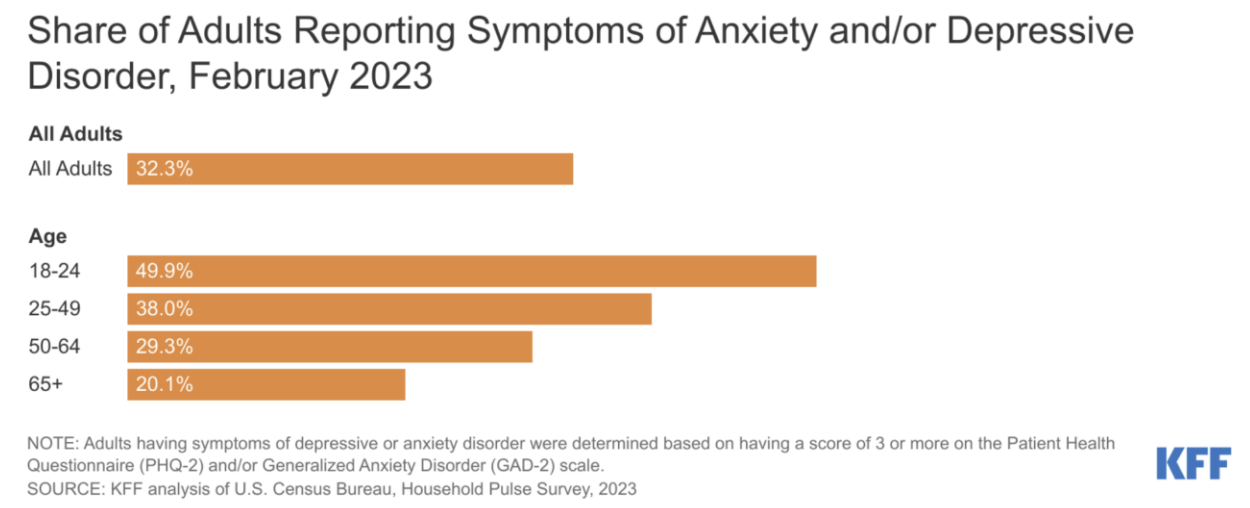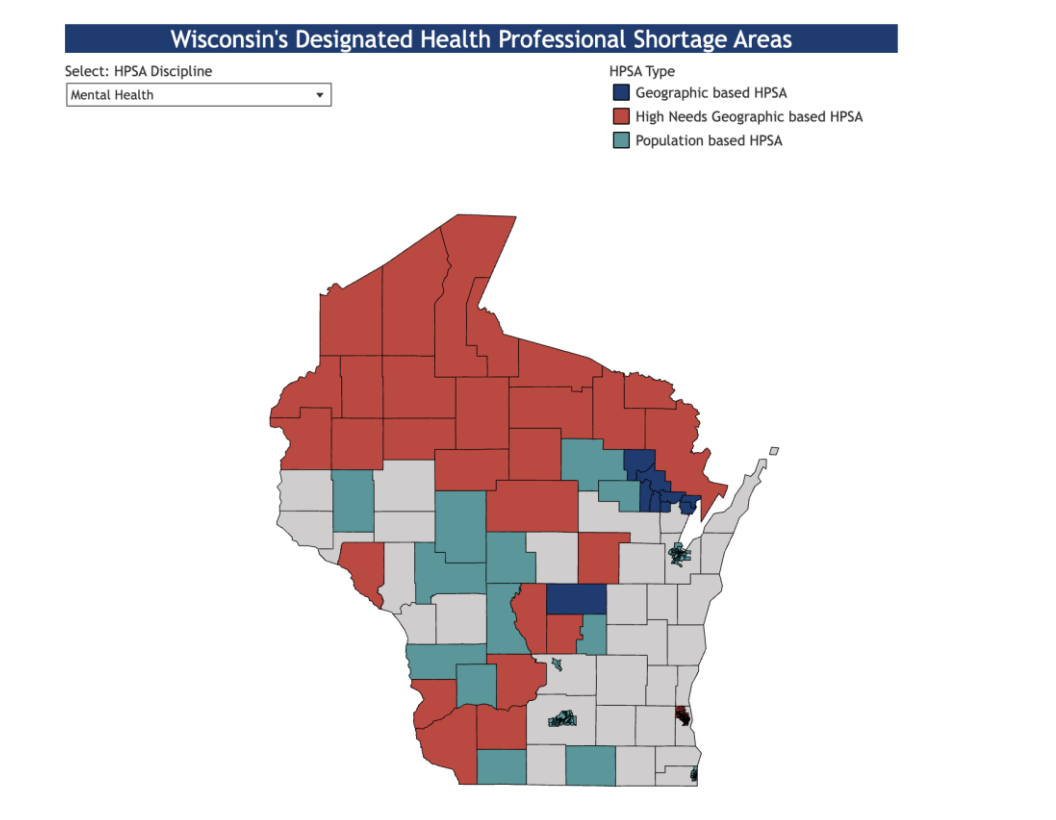This post originally appeared at https://will-law.org/will-highlights-mental-health-awareness-in-may/
May is Mental Health Awareness Month, and it is more important than ever to ensure that people have access to the resources and support they need. A recent report by WILL highlights how social capital, the network and relationships people have, has been declining for decades and made worse by the pandemic. Today, we do not spend as much time with friends and family or being involved in our communities through volunteering or civic engagement—making us lonelier and more isolated than ever.
In May of 2023, the Surgeon General declared loneliness an epidemic in the United States because of its negative impact on our mental, and even physical, health. Loneliness and social isolation are associated with higher risks of depression, anxiety, and suicide which all rose significantly during the pandemic. The increased rates are still a large concern today, especially for teenagers and young adults who are experiencing it at a higher rate. Loneliness and social isolation are also associated with higher risks of dementia (+50%), stroke (+32%), and heart disease (+29%). It is critical to the overall health of our communities that people have a network they can rely on through mental health struggles and can access professional help when necessary.

Combatting loneliness will take collective effort over time and is not silver bullet to address the rising rates of mental illness. It is important that Wisconsin residents have access to the mental healthcare they need. Unfortunately, many don’t have that right now. According to the Wisconsin Department of Health Services, 42 mostly rural counties and the Cities of Madison, Milwaukee, Kenosha, Green Bay, and Portage are facing shortages in mental healthcare providers.

Luckily, increasing access to mental health professionals in Wisconsin is a bipartisan issue and great strides were made in the 2023 legislative session. At the end of March, multiple mental health bills were signed into law such as expanding crisis center facilities, allowing marriage and family therapists in schools, and providing more mental health support for police officers and other first responders. All these bills had huge bipartisan support—some even unanimous.
That doesn’t mean there isn’t more to be done. Another mental health bill with bipartisan support made it to the Governor’s desk but was vetoed—AB 541. This would have allowed out-of-state psychologists, counselors, therapists, and social workers to provide telehealth services to Wisconsin residents as long as they are licensed, in good standing, and notify the Department of Safety and Professional Services within 30 days of first providing mental health services in the state. A report from the Institute for Reforming Government (IRG) highlights multiple states that have enacted similar laws such as Arizona, Delaware, and Idaho.
Given the Governor’s veto, which claims concerns over the quality of care and little in-state complaint recourse, it might be surprising to learn that he enacted this exact same policy during the pandemic. If this policy was sufficient to support Wisconsinites at their most vulnerable during a pandemic, then it should still be acceptable today. Ensuring that the providers are licensed in good standing ensures quality for patients, and patients can still file complaints with the board or agency that credentials their out-of-state provider. Governor Evers also mentioned that Wisconsin is part of multiple interstate compacts, such as the Interstate Counseling Compact (ICC), as a reason that this law is not necessary. However, these still have drawbacks that limit access. IRG pointed out that states with high numbers of qualified counselors like California and New York are not part of the ICC, and neither are our neighboring states of Michigan, Minnesota and Illinois.
As we continue to navigate the complexities of mental health care, it is imperative to advocate for policies that lower barriers, promote accessibility and support for all individuals, ensuring that no one is left behind in their journey towards mental well-being.

Miranda Spindt
Policy Associate
Miranda@will-law.org
The post WILL Highlights Mental Health Awareness in May appeared first on Wisconsin Institute for Law & Liberty.